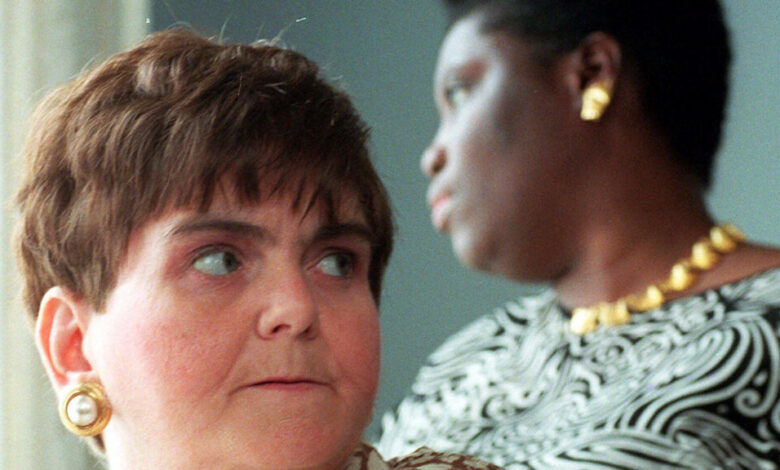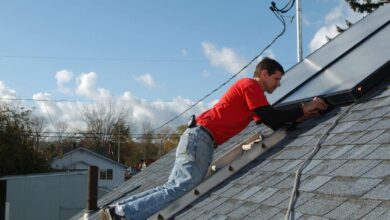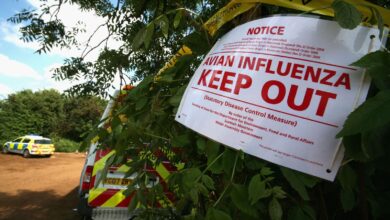25 years ago, SCOTUS outlawed segregation of disabled people

As a toddler, Veronica Ayala cherished Fridays. At 5 o’clock sharp, her mother whisked her away from the grim Moody State Faculty for Cerebral Palsied Kids for a 48-hour reprieve. Ayala’s home was mere minutes away, however the medical doctors insisted that she needed to dwell on the Galveston, Texas establishment through the week so she may discover ways to stroll.
“It was alleged to be for six months. Then it was a 12 months, after which it went into 18 months. I principally had achieved the targets I used to be there to realize. They tried to maintain me longer” however her mother eliminated her from Moody’s, mentioned Ayala, who stayed there within the early Seventies and is now a incapacity rights advocate. “I didn’t even understand how traumatic all of it was till years later when somebody requested me about it, I simply broke down in tears. I used to be a toddler, you recognize? I didn’t perceive.”
Extended, involuntary stays in establishments was the norm for individuals with disabilities, as books like “One Flew Over The Cuckoo’s Nest” have portrayed. However after two Georgia girls with psychological sickness and developmental disabilities sued to depart a state hospital, the Supreme Court decreed in 1999 that siloing individuals with disabilities in hospitals was discriminatory and a violation of the People with Disabilities Act.
This landmark ruling, referred to as the Olmstead choice, augured a shift away from institutional look after long-term providers and in direction of essentially the most built-in setting attainable — treating individuals with disabilities not as outcasts however as neighborhood members who could make decisions and determine their very own futures. The title refers back to the foremost defendant, Tommy Olmstead, the commissioner of the Georgia Division of Human Sources on the time. Some consultants consult with it because the Brown v. Board of Schooling for individuals with disabilities due to its dramatic enlargement of civil rights within the face of compelled segregation and a rejection of “separate however equal” establishments.
The change was lengthy overdue, mentioned D’Arcy Robb, Georgia Council on Developmental Disabilities govt director. Individuals have been disappearing. “At one level in our society, if an individual was a “downside” or seen as a “downside,” it was really easy for his or her rights to only evaporate, for them to only be despatched into an establishment,” mentioned Robb. “And plenty of instances, people by no means bought out.”
Twenty-five years after the Olmstead choice, dwelling and community-based providers (HCBS) is the norm relatively than the exception for Medicaid recipients. Nationwide Medicaid spending on HCBS routinely exceeds spending on institutional providers, and nearly 10 million people received some form of HCBS in 2019. Most states now have “Olmstead plans” that sketch out methods to additional develop neighborhood care, too.
However these good points are unevenly distributed, and incapacity advocates have needed to sue a number of states to make sure their compliance.
“It doesn’t flip a swap and make the issues go away, nevertheless it units a beacon and says that is the best way we’re going,” mentioned Robb.
The unique lawsuit was filed domestically by Atlanta Authorized Support on behalf of Lois Curtis in 1995 after which quickly after included Elaine Wilson. Each girls had requested to obtain neighborhood care, and medical doctors had deemed them match to take action. However their respective hospitals denied their requests. They remained behind locked doors for years, till Authorized Support stepped in and represented them in Olmstead v. L.C.
Susan Goico had a front-row seat to the motion. Recent out of regulation faculty, Goico began working at Atlanta Authorized Support beneath Sue Jamison, the lawyer who shepherded the case from Georgia all the best way to the Supreme Court docket. In April 1999, she flew up from Atlanta and crashed on a pal’s niece’s sofa so she may watch her Authorized Support colleagues current their case to the 9 justices.
“I bear in mind feeling a lot awe,” mentioned Goico, now the director of the Atlanta Authorized Support Society’s Incapacity Integration Venture. “I used to be far again in one of many final rows of the gallery, craning my neck to see these individuals who I had learn choices by in regulation faculty and actually sitting up straight to try to take all of it in and see the sensible minds of those justices at work.”
Two months later, Justice Ruth Bader Ginsberg introduced a 6-3 choice whose ramifications are nonetheless being felt right now: If a disabled particular person needs to obtain neighborhood care, and it’s “affordable” for the state to offer such care, they can’t be denied such care. On this system, the care can happen at dwelling or in group properties or related settings.
However this enlargement of civil rights took time — particularly in Georgia.
In 2007, the Atlanta Journal Structure revealed “Hidden Shame,” a sequence that uncovered frequent assaults, overcrowding and substandard look after individuals with psychological sickness and developmental disabilities in Georgia’s state hospitals — the identical hospitals named within the Olmstead case. A subsequent DOJ investigation spurred the state into bettering look after individuals with psychological sicknesses, however 15 years later, there may be nonetheless an ongoing authorized battle as a result of the state will not be doing sufficient to adjust to Olmstead for individuals with developmental disabilities.
“It’s usually one step ahead and two steps again,” mentioned Goico. “House of Olmstead, what alternative to knock it out of the park, however that’s not what occurred.”
Complaints in different states usually revolve round HCBS ready lists. For the 38 states with a listing, the common ready interval is three years for nearly 700,000 people, in line with a 2023 KFF report. The overwhelming majority of individuals ready have mental or developmental disabilities.
Neighborhood care has its warts, too. Many individuals within the incapacity neighborhood will not be keen on group properties, specifically, particularly those that aren’t included beneath the auspices of neighborhood care in some states due to their poor situations.
Madeline Petrone has witnessed this first-hand in Georgia. She’s lived in a number of group properties and has handled neglect, bodily abuse and a rotating forged of caregivers who tried to “dope her up” with pointless medicine. She moved again in along with her mom 12 years in the past and has been advocating for higher group dwelling situations ever since.
“I wish to assist individuals with disabilities get out of group properties and dwell on their very own and have their very own caregivers, if they need that,” mentioned Petrone, 48, who has an mental incapacity and ADHD.
Olmstead deters the “warehousing” of disabled individuals in well being settings, nevertheless it has expanded its scope in recent times to incorporate the justice and education systems. The choice, and the ADA that preceded it, are half of a bigger shift integrating individuals with disabilities into society. Integration is not only a pleasant factor to have — it saves lives, mentioned Veronica Ayala.
Ayala’s aunt was put in an establishment when she was two as a result of she had Down syndrome and cerebral palsy. She died in that very same establishment, 26 years later. Ayala’s mother noticed what occurred to her sister and wished to make sure her daughter didn’t meet the identical destiny. So she took her out of Moody’s. Even with Olmstead, life feels precarious for Ayala. She’s married and has a loving neighborhood however doesn’t know if, given the improper circumstances, she may find yourself again in an establishment.
“Proper now, every part’s positive, however the best way issues are politically, individuals are rolling again individuals’s rights. How do I do know that that received’t occur to individuals with disabilities?” she mentioned.
Even when the care system isn’t excellent, Ayala says it is very important have a good time Olmstead. Twenty-five years in the past, she was 30 years previous and dwelling in Albany when Justice Ginsburg introduced the choice. She determined to have a swanky social gathering with associates. She purchased a bottle of Cristal champagne and partied into the evening, celebrating the loss of life of an thought.
STAT’s protection of incapacity points is supported by grants from Robert Wooden Johnson Basis and The Commonwealth Fund. Our monetary supporters will not be concerned in any choices about our journalism.




